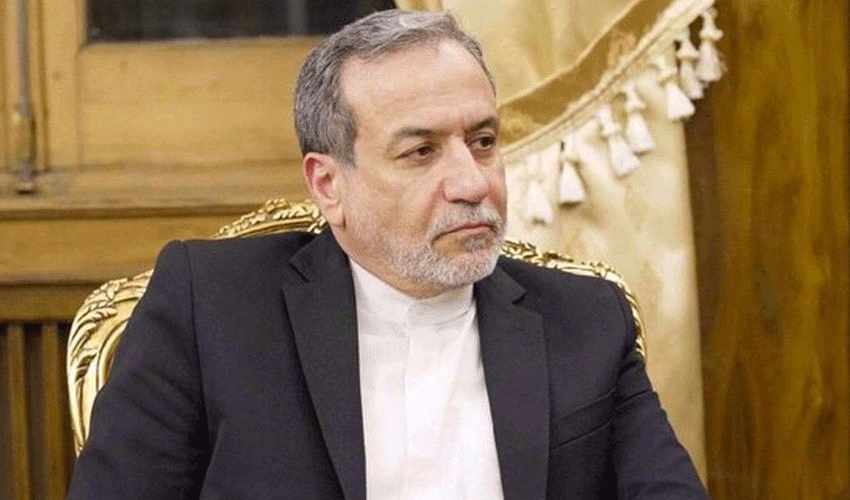Araghchi asserts that Iran’s nuclear expertise cannot be obliterated by military strikes.

Iranian Foreign Minister Abbas Araghchi has asserted that Iran’s scientific expertise and uranium enrichment capabilities cannot be obliterated by military force, emphasising that the nation’s peaceful nuclear sector is fundamentally anchored in national resilience and technological progress.
“One cannot eradicate the technology and science for peaceful uranium enrichment through bombardments,” Araghchi stated in an interview with CBS News broadcast on Tuesday, marking his initial comprehensive comments since the Israeli regime initiated military strikes on Iran’s nuclear facilities earlier this month.
The remarks follow US President Donald Trump’s assertion that American strikes had “obliterated” Iran’s nuclear facilities—a claim subsequently refuted by evaluations from the US Department of Defence.
On June 13, Israel initiated a military campaign against Iran, focussing on nuclear and military infrastructure, which Tehran has characterised as an unprovoked conflict. The United States, which had been offering substantial military and intelligence assistance to Tel Aviv, commenced its own offensive towards the conclusion of the 12-day conflict, executing strikes on critical nuclear installations in Iran’s central and north-central areas.
Notwithstanding the assaults, Araghchi maintained that the damage was remediable and asserted the nation’s resolve to rehabilitate and enhance its nuclear program.
“If we possess the requisite determination — which we do — we will swiftly rectify the damages and compensate for the lost time,” he asserted, emphasising the symbolic and strategic significance of the nuclear industry for the Iranian populace.
Patriotism
Araghchi emphasised that Iran’s nuclear program, although inherently peaceful, has evolved into a symbol of national pride, particularly after the nation’s successful defence during recent conflicts.
“We have endured 12 days of enforced conflict; consequently, individuals will not readily retreat from enrichment,” he stated. “Throughout the conflict, we exhibited and validated our capacity for self-defense.”
The foreign minister emphasised that Iran would not hesitate to retaliate in self-defence if confronted with renewed military aggression.
Regarding the potential resumption of diplomatic discussions with the United States, Araghchi conveyed scepticism and indicated that Tehran was not eager to reengage in negotiations.
“I doubt that negotiations will resume as swiftly as that,” he stated. “Before we can choose to reengage, we must first ascertain that America will not resume military aggression against us during any diplomatic negotiations.”
Negotiations are improbable to recommence in the near future.
The comments arise amidst ambiguity regarding the future of indirect negotiations between Tehran and Washington. Negotiations facilitated by Oman commenced in April and extended over six rounds, but were hindered by US demands — supported by Israel — for Iran to entirely cease its uranium enrichment activities, a stipulation Tehran has consistently rejected.
The recent US military strikes have exacerbated distrust between the two parties, prompting Iranian officials to scrutinise the Biden administration’s dedication to diplomacy.
“If diplomacy were genuinely afforded an opportunity,” remarked an Iranian official this week, “why did Washington opt for a course of aggression?”